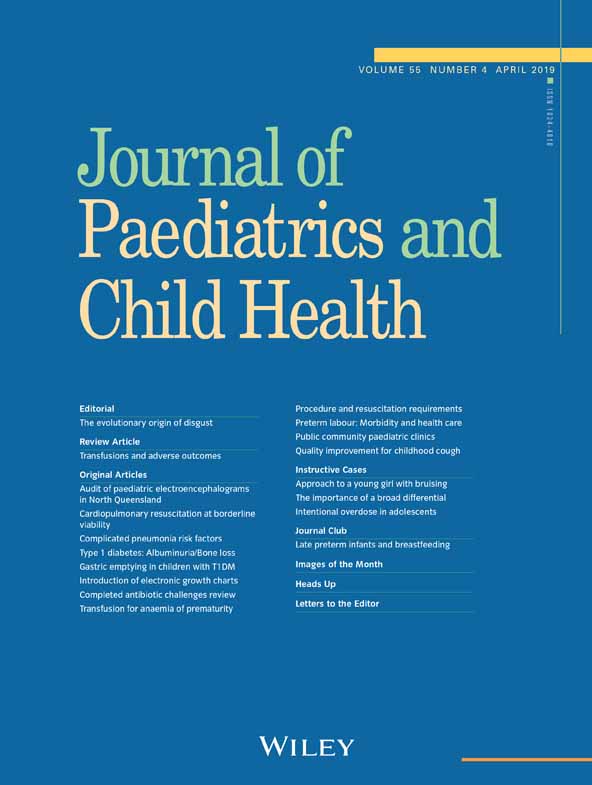Predictive risk factors for complicated pneumonia in Malaysian children
Abstract
Aim
To investigate baseline characteristics associated with complicated community-acquired pneumonia (CAPc) in Malaysian children. CAPc, such as pleural effusion and/or empyema, is on the rise, especially in Southeast Asian children, and the reasons for this are unknown.
Methods
A retrospective study was conducted on all children aged 2–16 years who were admitted to the University Malaya Medical Centre with community-acquired pneumonia between 2012 and 2014.
Results
In this study, of the 343 children, 58 (17%) developed CAPc. Chinese ethnicity (P < 0.001), reduced breastfeeding duration (P = 0.003), not receiving outpatient antibiotic (P < 0.001) and exposure to parental smoking (P < 0.001) were identified as risk factors for CAPc. Markedly increased respiratory rate (P = 0.021) and thrombocytosis (P < 0.001) were noted as the clinical parameters for CAPc.
Conclusion
This study identifies some modifiable risk to reduce the burden of pneumonia complications.




